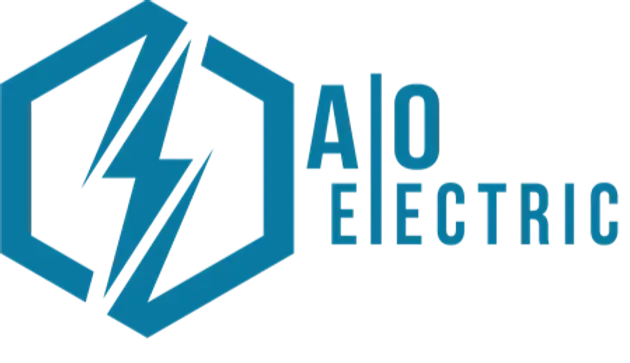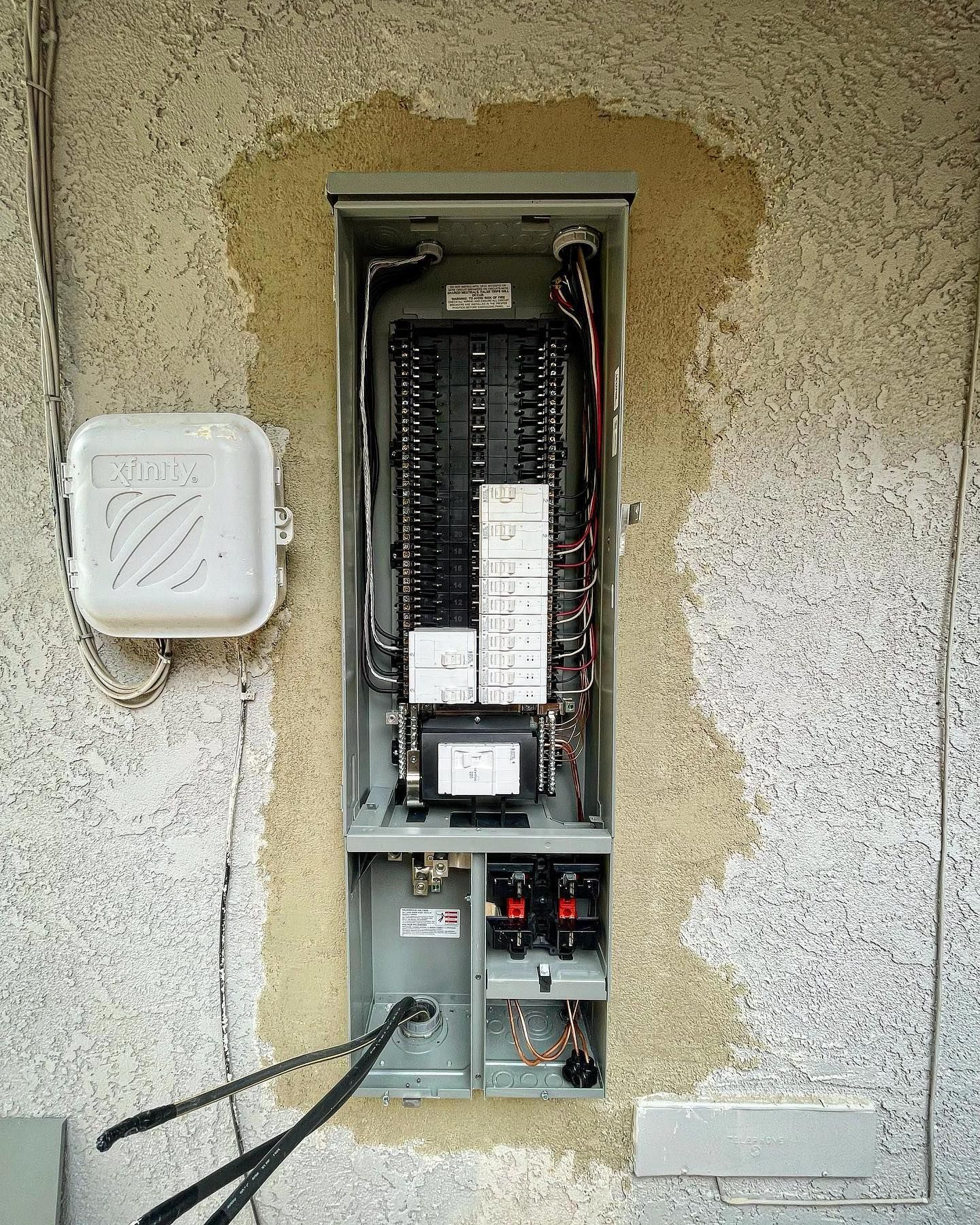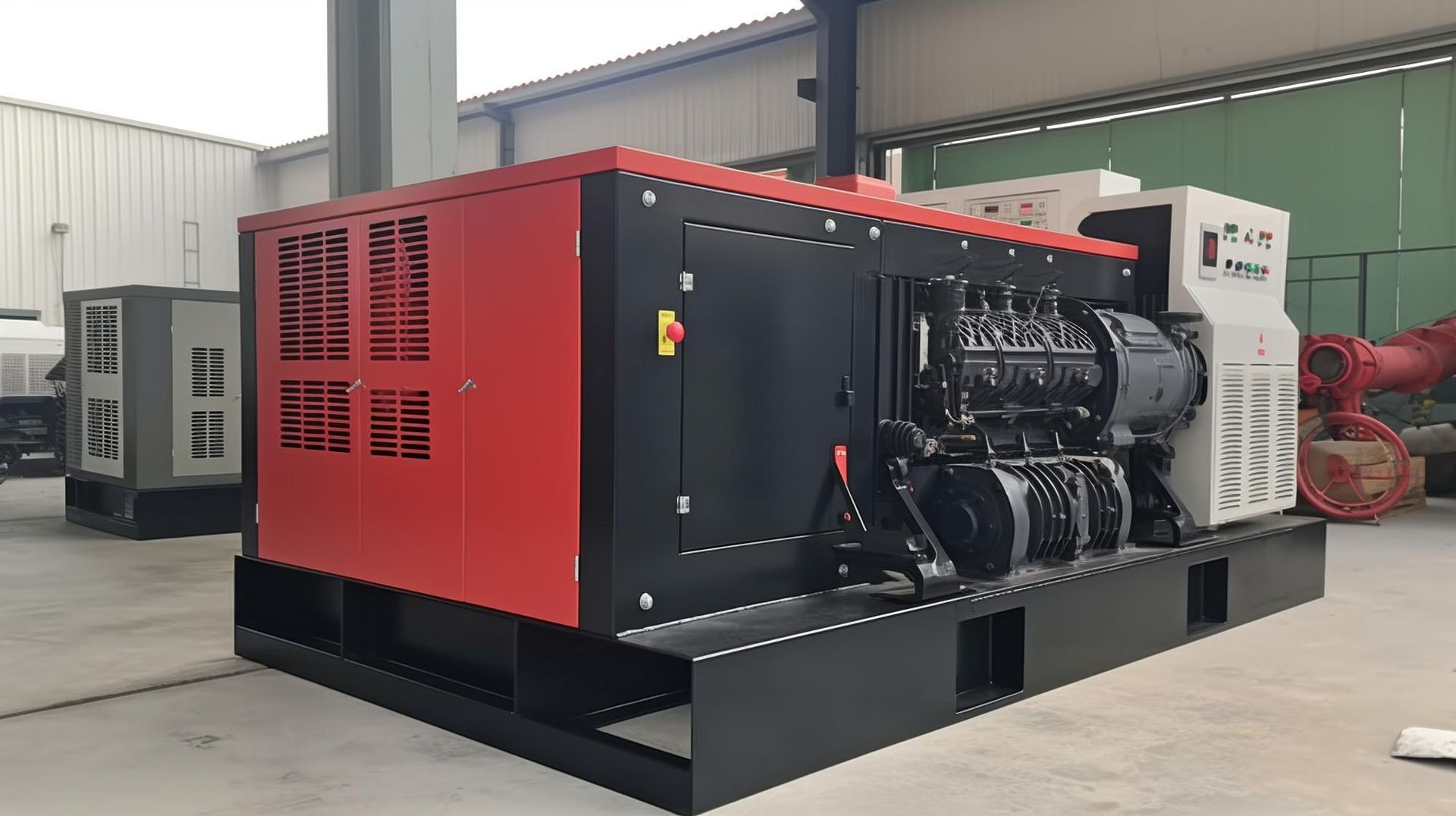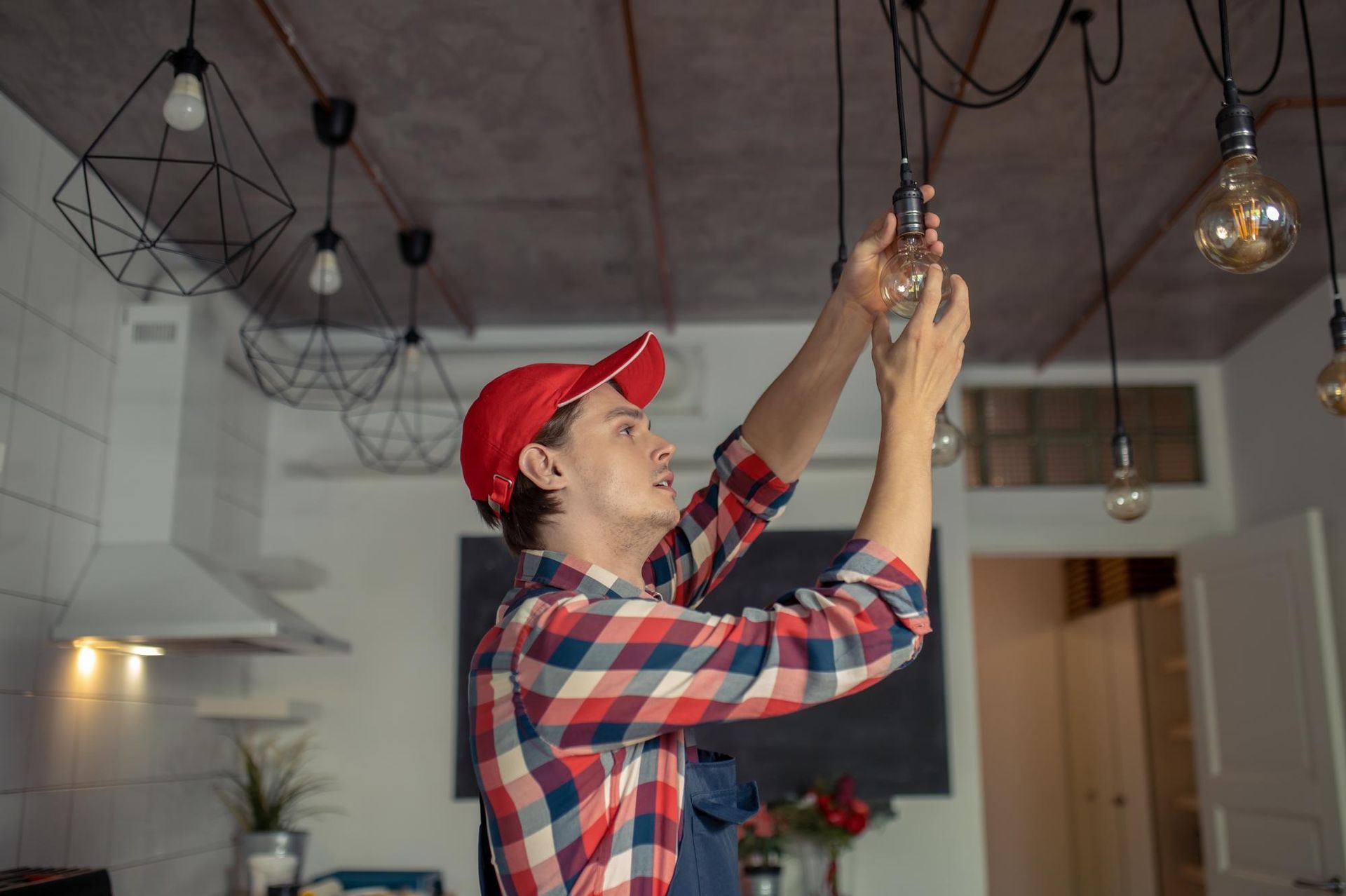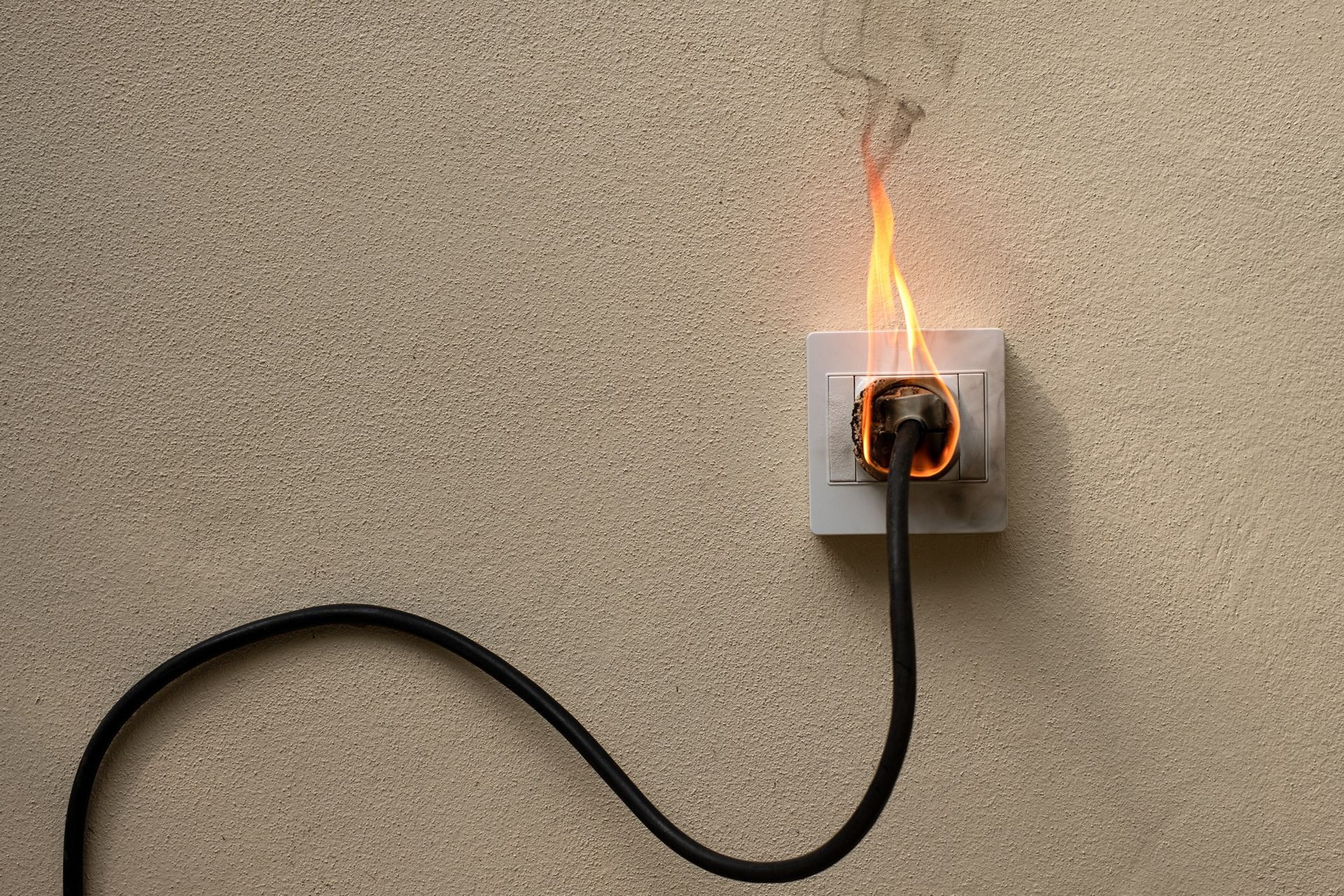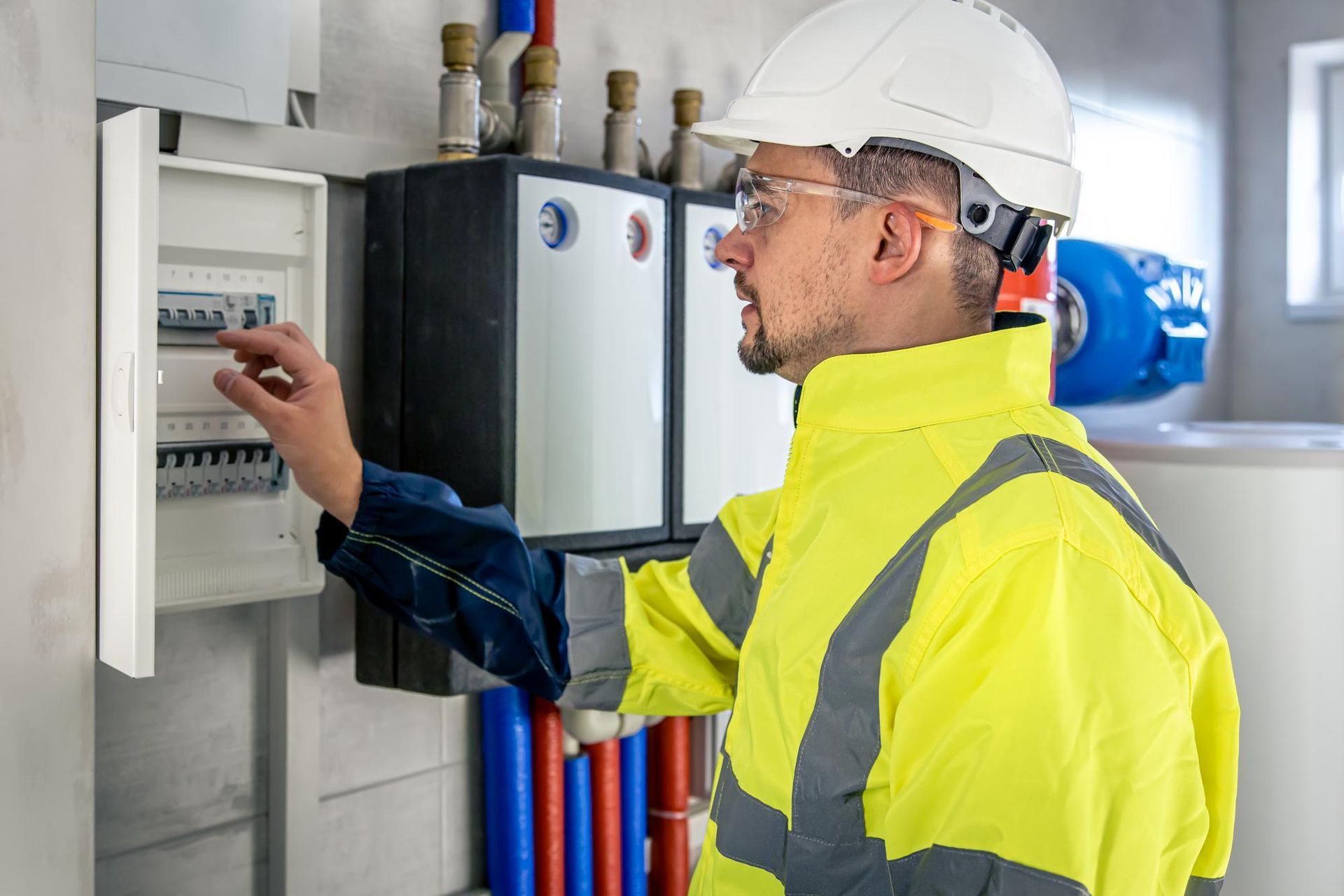Sacramento, CA
Electrical Panel Maintenance: Best Practices for Longevity
When it comes to maintaining the heart of your home's electrical system, the electrical panel, utmost care and attention are crucial. Not only does it distribute electricity to various rooms and appliances, but it also ensures the safety and efficiency of your home's electrical network. Understanding and maintaining your electrical panel is not just a matter of efficiency; it's a critical safety practice. In this article, we'll dive deep into the world of electrical panel maintenance, unraveling best practices that promise longevity and safety.
Understanding Your Electrical Panel
An electrical panel, often known as a breaker box, is the central hub of a home's electrical system. It's where the main power line from the street connects to your home's circuit breakers. Each breaker controls the power flow to different rooms and appliances. By understanding your electrical panel, you're taking the first step in ensuring its longevity and optimal performance. Electrical panels come in various types and sizes, each designed to suit specific home sizes and power needs. The key components of an electrical panel include the main breaker, circuit breakers, bus bars, and neutral and ground bars - all crucial for distributing power safely.
Signs of Electrical Panel Issues
Recognizing the early signs of electrical panel issues can prevent costly repairs and dangerous situations. If you notice flickering lights, breakers that frequently trip, or a burning smell near the panel, it's time for a closer look. These signs could indicate overloaded circuits, faulty wiring, or a deteriorating electrical panel. Ignoring these signs not only risks the longevity of the panel but also your safety.
Routine Maintenance Practices
Regular maintenance is essential for any electrical panel. Experts recommend a thorough inspection at least once every three years. Basic maintenance includes checking for loose connections, ensuring no signs of corrosion, and verifying that all breakers are functioning properly. This routine check keeps the electrical panel in optimal condition and helps identify issues before they escalate. However, while some checks can be done personally, it's crucial to have professional inspections for a comprehensive assessment.
Upgrading Your Electrical Panel
Over time, your electrical panel might need an upgrade. This is particularly true for older homes or if you're adding more appliances that demand additional power. Upgrading your electrical panel ensures that it can handle increased electrical loads while enhancing safety features. It's an investment that not only improves the efficiency of your home's electrical system but also its resale value.
DIY vs. Professional Maintenance
Maintaining your electrical panel is a balancing act between what you can safely manage as a homeowner and when it's time to call in the experts. While DIY maintenance can be tempting, understanding the boundaries of safe and effective self-care is essential for the health of your electrical system and, more importantly, for your safety.
DIY Maintenance Tips:
- Visual Inspections: Regularly inspect your electrical panel for any visible signs of wear and tear. Look for rust, burn marks, or any signs of damage on the panel box. Check if all labels are legible and correctly identify each circuit breaker's purpose. This helps in quickly identifying issues if they arise.
- Ensuring Clear Space: Always keep the area around the electrical panel clear. A minimum of three feet of clear space is recommended to ensure easy and safe access in case of emergencies or for maintenance work.
- Testing Circuit Breakers: Periodically test your circuit breakers to ensure they are functioning correctly. This can be done by flipping each breaker to the 'off' position and then back to 'on'. This simple test can help detect if any breakers are malfunctioning.
- Dust and Debris Cleaning: Keep the panel exterior free of dust and debris. A gentle wipe with a dry cloth can prevent the accumulation of dust which, in extreme cases, can be a fire hazard.
When to Call a Professional:
Despite these maintenance steps you can do yourself, there are scenarios where a professional's expertise is irreplaceable:
- Internal Repairs and Replacements: Any task that requires opening the panel and handling internal components should be left to a professional. This includes replacing circuit breakers, rewiring, and dealing with anything else beyond the outer surface of the panel.
- Upgrading Panel Capacity: If your current electrical panel is unable to handle your home's electricity demand, it's time for an upgrade. This is a complex task that involves not just technical know-how but also an understanding of local electrical codes and safety standards.
- Annual Inspections: Even if everything seems to be in order, having a professional electrician inspect your electrical panel annually is a good practice. They can identify potential issues that aren't visible to the untrained eye, ensuring your electrical system remains in peak condition.
- After an Electrical Incident: If your home has experienced any electrical issues, such as frequent breaker trips, shocks, or sparks, it's crucial to get a professional assessment. These could be symptoms of deeper problems that require expert intervention.
While basic cleaning and visual inspections can be part of your DIY maintenance routine, anything that involves in-depth knowledge of electrical systems should be left to professionals. This not only ensures the long-term health of your electrical panel but also guarantees your safety and compliance with local electrical codes.
Safety Precautions During Maintenance
Safety is paramount when dealing with any aspect of your home's electrical system, especially the electrical panel. Always turn off the main power before performing any maintenance tasks. Use personal protective equipment like insulated gloves and goggles to protect against accidental shocks. If you're ever in doubt, step back and consult a professional. Remember, your safety is more important than any maintenance task.
Long-term Care and Tips for Optimizing Lifespan
To maximize the lifespan of your electrical panel, regular maintenance is just the starting point. Protecting it from environmental factors like moisture and extreme temperatures also plays a significant role. Ensure your electrical panel is installed in a location safe from potential flooding and shielded from extreme heat or cold. Additionally, consider having a surge protector installed to safeguard against power surges, which can significantly wear down your electrical panel and connected appliances. Finally, staying updated with the latest electrical standards and practices can help in future-proofing your electrical system.
Conclusion
Regular maintenance of your electrical panel is not just a good practice for ensuring efficiency and longevity; it's a necessity for the safety and well-being of your home and family. Understanding the basics of your electrical panel, recognizing signs of potential issues, following routine maintenance practices, and knowing when to call in professionals, are all key to keeping this critical component of your home's electrical system in top condition.
At
AO Electric Inc., we understand the importance of a well-maintained electrical panel. As the best service provider in Sacramento, CA, we're dedicated to ensuring the safety and efficiency of your home's electrical system. With our expertise, you can rest assured that your electrical panel will receive the highest level of care and attention. Our team of licensed professionals is equipped to handle everything from routine inspections to complex upgrades, ensuring your electrical panel serves as the reliable backbone of a safe and efficient home.
For top-notch electrical panel maintenance and services, don't hesitate to contact us at AO Electric Inc. You can reach us at
(916) 531-6398. Remember, a well-maintained electrical panel isn't just a component of your home; it's the heart of your family's safety and comfort.

